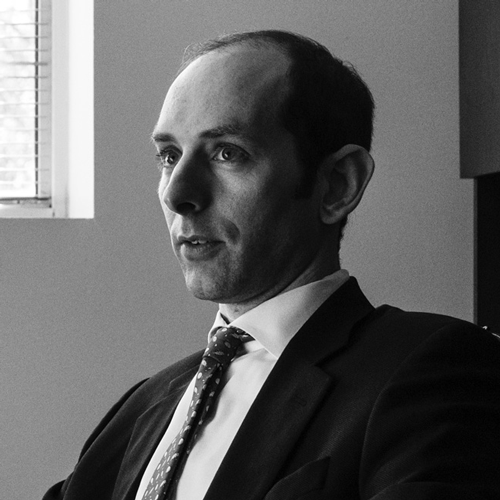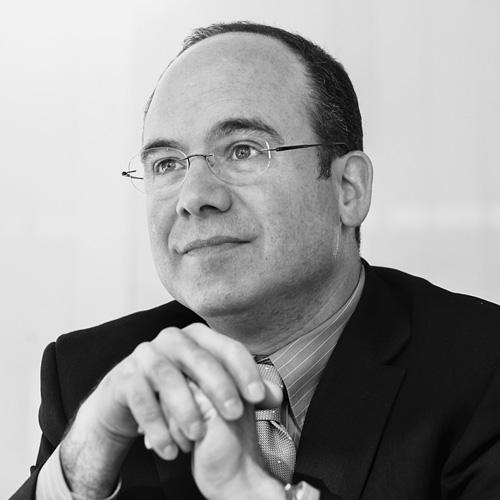
Malini Moorthy, VP & Associate General Counsel; Head of US Litigation, Bayer
The pharmaceutical industry is perhaps the single most polarizing field today. There are some who see a pill as a solution to every problem and others who refer to “big pharma” as an evil supervillain. Malini Moorthy sees it another way, one that’s nowhere near either pole.
Moorthy is vice president and associate general counsel of Bayer, an international life-sciences company best known for its over-the-counter products, such as Aleve, Bayer Aspirin, Alka-Seltzer, Flintstone Vitamins, and Midol. It also produces and markets prescription medications, animal medications, and agricultural products to help clients worldwide.
Prior to joining the Bayer team, Moorthy spent ten years working for another pharmaceutical company, which confirmed her desire to work as an in-house attorney. “An in-house lawyer is really distinguishable from an outside lawyer in terms of the role you play—in particular, the close partnering with the business and the impact it has on your strategic thinking and mindset,” she says.
Moorthy’s years of experience working on the legal side of healthcare also gave her a chance to grow professionally. When it came time for her to look for ways to spread her wings further, she was made aware that Bayer was looking for a head of US litigation.
“The company itself appealed to me because I thought very highly of the leadership, both in the US and globally,” Moorthy says. “I respected and appreciated the diverse nature of its portfolio, which was more diversified than a lot of other pharmaceutical companies. I saw the company to be one of opportunity and growth, both as a business as well as for me personally.”
Moorthy also fell in love with the culture at Bayer. She wanted to work for an international company that, in addition to its global footprint, had significant influence in the United States.
For its part, Bayer was looking to bring new talent to its US litigation team, as some fresh blood would bring a new approach to the company. Moorthy likes that attitude because she feels it has a tendency to create exciting opportunities. Fortunately, it was a good fit, and Bayer brought Moorthy on board.
“When we talk about ‘Science for a Better Life,’ it’s really across the board. It’s what makes Bayer unusual, what attracted me to it, and it positions us in a very strong place going into the future.”
Moorthy’s first order of business when she joined Bayer’s legal team was to define the legal department’s goals and the strategies to achieve them. Most think the goal of a litigation department is just to manage litigation, but Moorthy has a different approach. “My goal is to reduce Bayer as a target of litigation,” she says. “That means strategically and actively managing the claims and lawsuits against the company to get the best outcome.”
Moorthy also makes sure her department is there to advise the company on the best practices it can use to limit the risks of litigation, including taking a more proactive approach to shape the laws that govern companies like Bayer.
“I think we have to engage externally, participate in efforts to shape our legal system, and take leadership roles so we can help the company effectively navigate our operating environment,” Moorthy says. “My team and I have a critical role to play in creating as fair, efficient, and consistent a legal system as possible here in the United States.”
Just because she works to reduce litigation doesn’t mean Moorthy is afraid of litigating on behalf of Bayer when she needs to. One of her proudest accomplishments is winning a lawsuit against the government over one of Bayer’s products.
The Federal Trade Commission (FTC) filed a lawsuit against Bayer, alleging the company improperly claimed its probiotic supplement (Phillips’ Colon Health) could cure diseases. Bayer had not conducted any randomized trials to back up these claims, and the FTC alleged Bayer needed to conduct trials before making claims about the product’s effectiveness. But the company only claimed that its supplement could treat and prevent incidents of occasional constipation, diarrhea, gas, and bloating. Bayer produced almost 100 studies corroborating the health benefits of its probiotic, and the judge ruled in its favor, saying that constipation, diarrhea, gas, and bloating were not diseases, but instead “variations of the normal state of health.”
Moorthy was all too aware of the challenges that accompany facing off against the government in court, but she was sure Bayer was in the right. “It was the first trial under my watch, and I felt strongly that we had a very good position, that we were very much in the right, and that this was a case that we should take to trial,” she says. “You can never be sure of an outcome, but we felt strongly that we could win and that we should win. I’m very proud of the work that we—internally as well as together with our outside counsel—did to both prepare for and execute the trial. We obtained a complete win, and the government ultimately chose not to appeal, resulting in a final judgment in favor of Bayer.”
Any time a company or individual is faced with a lawsuit, its public reputation suffers, regardless of the accuracy of the allegations. By pursuing this case all the way through to a court judgment, Moorthy felt she was standing up for Bayer as a company and for the work it does.
“It validated our process, our science, and our promotion of the product,” she says. “The win also validated our good conduct as a company, which was one of the most important things we were defending. I’m proud of my colleagues who work every day to develop, produce, and market products that support better health and wellness. This win was a vindication for them and their work.”
Moorthy credits this success with some of the retooling and reshaping she did to the department’s overall approach to litigation. “We think about trial from the outset and develop and build the case with a view to our trial themes and narrative,” she says. “And if you do it that way, everything you do across the board in managing the matter is that much stronger.”
This involved rethinking every aspect of litigation from the standpoint of how the department can go about creating the best outcome. By using this line of thinking in every aspect of litigation, it changes the company’s approach regarding who manages the litigation, how to prepare witnesses, how to try their cases, and everything in between.
Moorthy also orchestrated the shift to more efficient and cost-effective processes, including a transition from law firm-managed review of documents to vendor review, which has proven to have significant savings for Bayer when implementing standardized budgeting processes for all US litigation matters and negotiating preferred vendor agreements. “These were steps that we either had not taken or fully embraced,” Moorthy says. “When I came in, I felt strongly that we could simultaneously mitigate and manage risk effectively while delivering a cost benefit.”
But it’s not just Bayer’s legal department that’s innovative. The company has a “Plants, People, Pets” enterprise, in which it creates opportunities for innovation by recognizing that those three areas have more in common than most people realize, both at the clinical level and the innovation level.
“When we talk about ‘Science for a Better Life,’ it’s really across the board,” Moorthy says. “It’s what makes the company unusual, what attracted me to it, and it positions us in a very strong place going into the future.”


